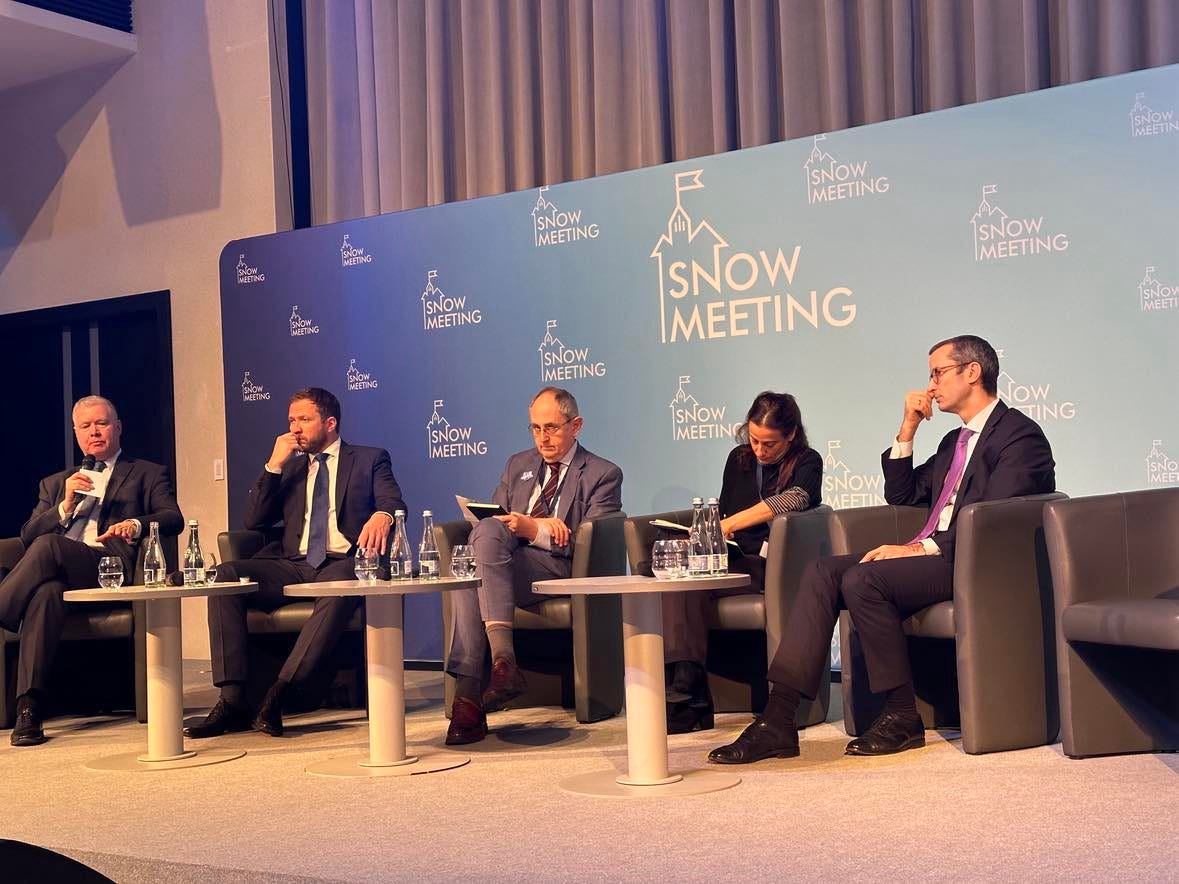Stop panicking. Start organising
Stop speculating about Trumpland's plusses and minuses, and get on with the urgent jobs in front of us
How bad is it?
That’s the question rattling round the region. Make that questions, many of them.
I’ve just been in Lithuania at the annual ‘Snow Meeting’ which brings together 20-odd decision-makers for an off-the-record discussion late into the night, with Chatham House rule sessions the next day (here’s my panel with Steve Biegun, Margus Tsakhna, Natalie Tocci and Gũnter Sautter)
I was struck by the breadth of views (explored in my latest CEPA column). At one extreme are those who think Russia is on the verge of failure in Ukraine. Economic, military and political nemesis will deal with Putin if we just keep going. Trump’s threats of economic pressure are a welcome boost for these optimists. Others—exemplified in this by John Schindler, for example—see a crumbling front line, shrivelling morale and splintering international support. Most likely (I think) is that Trump huffs and puffs but does little.
Then there’s Russian attacks on western countries. Just a nuisance? Or a fast-escalating unconventional war? Three British naval vessels have been busy shooing away a Russian spy ship snooping, again, over our cables. The Washington Post has published a (to me) implausible article saying that the recent seabed incidents in the Baltic are just accidents, not deliberate sabotage. Why would any officials brief that? Here’s a stinging response from the Finns. I praised the Finnish-Estonian response to (what I’m sure is) Russian sabotage in my Times and CEPA columns.
One issue where there’s no discussion, just gloom, is that Britain is no longer a serious country in military or diplomatic terms. We cannot field a single war-fighting division. I bemoaned this in a recent CEPA column. Britain cannot even defend itself, let along allies. The nuclear deterrent (new comms systems and refuelling for the existing one, plus the stonkingly expensive new subs and missiles) takes up around half the defence budget. If you think the waste is bad on the conventional side, it’s even worse on the ultra-secret nuclear programmes.
But—and it’s a big but—the security and intelligence relationship remains strong. There are probably more British intelligence officers working alongside partner services in the Baltic, chiefly in Estonia, than anywhere outside the United States.
Stealing secrets and catching spies is great. But information is no substitute for action. That’s what is lacking. We are sliding fast into a post-NATO, post-American European security order. Or more likely disorder.
We should be focussing on that, which we can control, not bemoaning or speculating about the Trump presidency. I wrote my Times column (now shifted from Mondays to Thursdays, btw) on this last week. Main points:
There was never a golden age. Being a US ally is always difficult
The alternative’s worse: anti-Americanism is an indulgence not a strategy
Don’t blame the US for self-inflicted wounds.
Language is a particular problem. We foreign policy experts we weigh words carefully, sometimes comically so (“gravely" concerned is one notch up from “deeply”). We worry about punctuation; every semi-colon counts. Trump’s loose-tongued talk leaves us horrified, like tea ceremony participants dealing with gate-crashers from a stag party.
But that’s what we face for the next four years. So get used to it. Be brash and gimmicky if necessary. Pearl-clutching outrage will get you sympathy from people who don’t matter, but will do nothing to impress those who make decisions. (Post continues after this reading list)
What I’ve been reading Watching the Jackals by Daniela Richterová. When I was based in communist-era Prague, the assumption among Western spy agencies was that Soviet-block countries were enthusiastic, well-organised supporters of Arab and other terrorist groups. The reality was a lot more complicated, as this gripping, finely detailed account reveals. Zero Sum by Charles Hecker is a first-hand account of the greedy, hubristic world of Western business in Russia from 1991 to 2022. The book has many flaws, but it gave me a chance to write this scorching review.Turning Point by Ben Tallis is a collection of essays and interviews about German foreign policy. I helped launch it in Vilnius last week. I share his outrage at Germany’s solipsistic approach to history—for German-speakers, here’s my speech on this back in 2008). Lost Souls by Sheila Fitzpatrick is perhaps the definitive account of the DPs (displaced persons) in post-war Germany, a refugee crisis solved by cold-war politics. My latest project is to push for a European Rearmament Bank. Along with the initiators, former British defence chief General Sir Nick Carter and the Anglo-Belgian financier Guy de Selliers, we launched this with a letter in the FT last week. The distinctive bit of this idea is to do something quick and simple. More on that next time, probably after my trips




